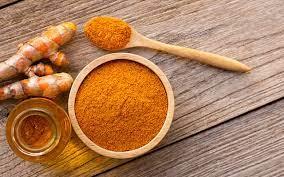Turmeric, a golden-yellow spice derived from the root of the Curcuma longa plant, has been celebrated for centuries in traditional medicine, particularly in Ayurveda and Chinese medicine. Recently, turmeric capsules have gained popularity as a dietary supplement, lauded for their potential health benefits. This guide explores the myriad of health advantages provided by turmeric capsules and how they can be an essential addition to your wellness regimen.
What is Turmeric?
Turmeric contains bioactive compounds with powerful medicinal properties, the most notable of which is curcumin. Curcumin is the main active ingredient in turmeric, responsible for its anti-inflammatory and antioxidant effects. However, the curcumin content in turmeric is not very high, around 3% by weight. Thus, turmeric capsules, which are standardized to include a higher concentration of curcumin, are more effective for medicinal purposes.
Anti-Inflammatory Properties
One of the most significant health benefits of turmeric capsules is their potent anti-inflammatory properties. Chronic inflammation is a root cause of many modern diseases, such as heart disease, cancer, metabolic syndrome, Alzheimer's disease, and various degenerative conditions. Curcumin in turmeric is a strong anti-inflammatory agent that can match the effectiveness of some anti-inflammatory drugs, without the side effects.
How Curcumin Reduces Inflammation
Curcumin achieves its anti-inflammatory effects by inhibiting molecules known to play major roles in inflammation. For instance, it blocks NF-kB, a molecule that travels into the nuclei of cells and turns on genes related to inflammation. By suppressing inflammation at the molecular level, curcumin helps prevent and treat inflammatory diseases.
Antioxidant Benefits
Oxidative damage is believed to be one of the mechanisms behind aging and many diseases. Turmeric capsules, rich in curcumin, significantly boost the body's antioxidant capacity. Curcumin neutralizes free radicals due to its chemical structure and also stimulates the activity of other antioxidant enzymes in the body.
Protecting Against Free Radicals
Free radicals are highly reactive molecules with unpaired electrons that cause oxidative stress, leading to cell and tissue damage. Curcumin can neutralize free radicals and block the action of free radicals directly. Moreover, curcumin enhances the activity of antioxidant enzymes such as superoxide dismutase, catalase, and glutathione peroxidase, providing a double layer of protection against oxidative stress.
Improved Brain Function and Lower Risk of Brain Diseases
Curcumin can increase brain levels of brain-derived neurotrophic factor (BDNF), a type of growth hormone that functions in the brain. Many common brain disorders have been linked to decreased levels of BDNF, including depression and Alzheimer's disease.
Curcumin and Brain Health
By boosting BDNF levels, curcumin may delay or even reverse many brain diseases and age-related decreases in brain function. Additionally, there is evidence that curcumin can cross the blood-brain barrier, leading to various improvements in the pathological process of Alzheimer's disease. It also reduces inflammation and oxidative damage, which play a role in the progression of Alzheimer's.
Heart Health
Heart disease is the leading cause of death worldwide, and curcumin may help reverse many steps in the heart disease process. The main benefit of curcumin when it comes to heart disease is improving the function of the endothelium, which is the lining of your blood vessels.
Enhancing Endothelial Function
Endothelial dysfunction is a major driver of heart disease and involves an inability of your endothelium to regulate blood pressure, blood clotting, and various other factors. Several studies suggest that curcumin leads to improvements in endothelial function, comparable to the effects of exercise or the drug Atorvastatin.
Potential Cancer-Fighting Properties
Curcumin has been studied as a beneficial herb in cancer treatment and has been found to affect cancer growth, development, and spread at the molecular level. It can reduce angiogenesis (growth of new blood vessels in tumors), metastasis (spread of cancer), and contribute to the death of cancerous cells.
Curcumin and Cancer Therapy
Although more research is needed, some studies have shown that curcumin can reduce the growth of tumors in animals. There is also some evidence that it may prevent cancer from occurring in the first place, especially cancers of the digestive system like colorectal cancer.
Alleviating Symptoms of Arthritis
Arthritis is a common problem characterized by joint inflammation. Given curcumin's powerful anti-inflammatory properties, it is not surprising that it can help with arthritis. Several studies have shown that curcumin can help reduce symptoms of arthritis and is, in some cases, more effective than anti-inflammatory drugs.
Curcumin’s Role in Joint Health
Curcumin targets multiple inflammatory pathways at the cellular level, reducing the production of enzymes and other proteins that promote inflammation. This leads to a decrease in pain and an improvement in joint function, making turmeric capsules a valuable supplement for those suffering from arthritis.
Turmeric capsules offer a convenient and effective way to harness the health benefits of curcumin. From reducing inflammation and oxidative stress to improving brain and heart health, these supplements can play a vital role in promoting overall wellness. However, it is essential to choose high-quality turmeric capsules with added black pepper extract (piperine) to enhance curcumin absorption. As always, consult with a healthcare provider before starting any new supplement regimen to ensure it is appropriate for your individual health needs.
